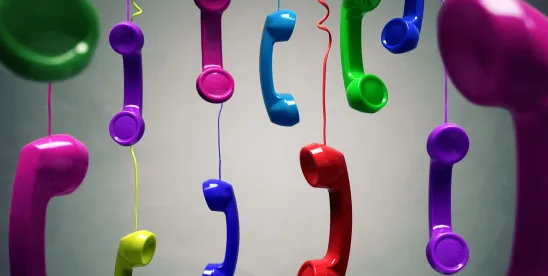Readers may recall that in February 2024, the FCC adopted a Report and Order imposing a number of new TCPA caller and texter compliance obligations in connection with consumer revocation requests, which are applicable to calls and text messages that otherwise require consent under the TCPA and the FCC’s rules. Those rules are slated to go into effect on April 11, 2025.
The FCC, however, has now issued a narrow, limited waiver of one aspect of those rules in the new Section 64.1200(a)(10) of its rules, extending the effective date of that section until April 11, 2026, to the extent the new rule requires callers and texters “to treat a request to revoke consent made by a called party in response to one type of message as applicable to all future robocalls and robotexts from that caller on unrelated matters.” The waiver was granted in response to requests from several associations of banks and financial institutions, supported by a healthcare industry vendor, stating that additional time is needed to ensure that entities can accurately apply revocation requests sent in response to one business unit’s calls or messages to future communications from its other business units.
Note that the waiver order emphasized that the one-year extension applies “only to section 64.1200(a)(10) to the extent discussed” in the order, and that it was only “delay[ing] the effective date of any such requirement” in the rule to treat an opt out from one messaging program of a caller as an opt out of all other messaging programs requiring consent. Thus, other aspects of the new rule appear unaffected by the waiver order, and are slated to go into effect on April 11, 2025 as previously announced.
These include, that callers and senders, as applicable: (i) must honor revocation requests made using an automated, interactive voice or key press-activated opt-out mechanism on a call; (ii) must honor revocation requests through seven specific texted back keywords (stop, quit, end, revoke, opt out, cancel, and unsubscribe); (iii) must treat other natural language text-backs by consumers as a valid revocation request if “a reasonable person” would understand those words to have conveyed a request to revoke consent; (iv) must honor revocation requests in a reasonable period of time, not to exceed 10 day; and (iv) may not designate an exclusive means to request revocation of consent.
Note too, that the February 2024 revocation mandate Report and Order included a wide range of revocation and consent issues not covered in the waiver order, as well as adopting additional rule sections. All of these likewise remain unaffected by the waiver order, which you can read about in our earlier our previous blog post here.





 />i
/>i

